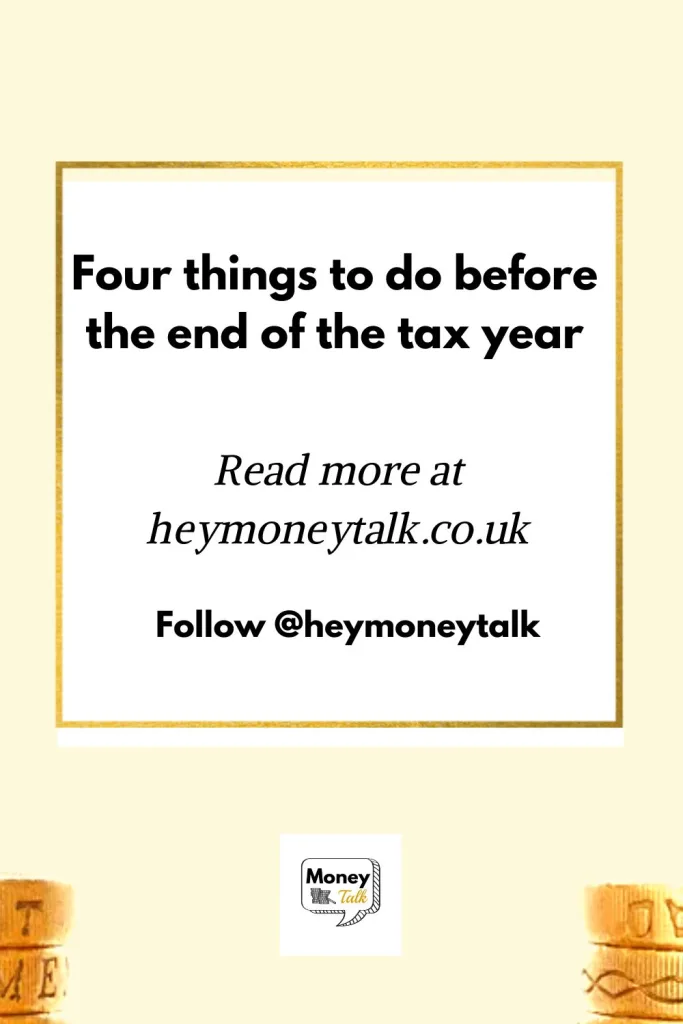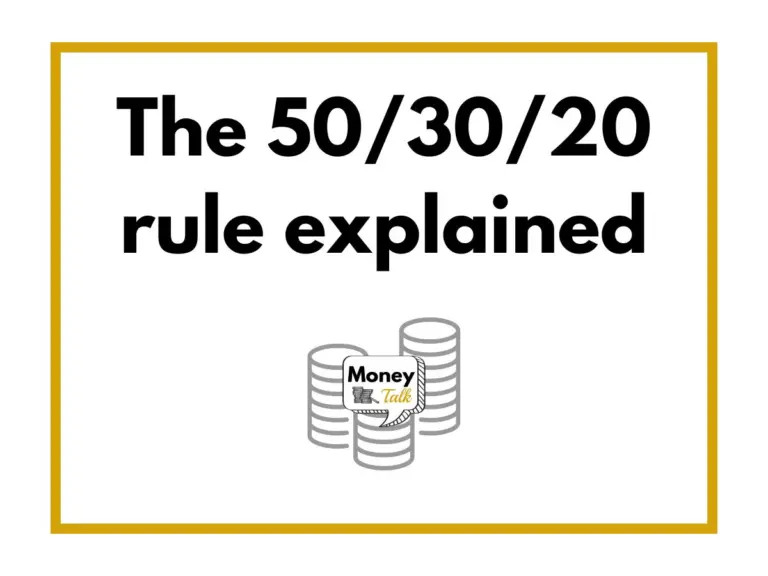Four things to do before the end of the tax year
Money Talk is intended to inform and educate; it's not financial advice. Affiliate links, including from Amazon, are used to help fund the site. If you make a purchase via a link marked with an *, Money Talk might receive a commission at no cost to you. Find out more here.
The end of the tax year is coming up on 5 April.
Although for most people it’s just a reminder to top up their ISAs, there are plenty of other things you could do.
In my case, as a self employed sole trader whose accounting year runs in tandem with the tax year, I’ve already started tallying up my expenses.
I don’t use any accounting software, so it’s a bit more manual, but I do it before the tax year ends so I can roughly work out my profits for the year.
This then helps me to decide how much I want to pay into my pension for the year.
But even for the salaried worker, there are things that can be ticked off before the end of the tax year. Here are a few.
Use your pension allowance
I don’t maximise my pension allowance because it’s only part of my retirement plan based on my personal circumstances and preferences, so it’s not something that will work for everyone.
But if you have the spare cash and can afford to, especially if you’re a higher earner, maximising your pension allowance can be well worth it.
Everyone has a personal allowance of £60,000 a year towards private pensions.
You can even pay in your entire salary up to that cap – although if your income is less than £60,000 then your salary is your cap
But, if you’ve had a particularly lucrative year, it might be worth paying more into your pension by using up previous years’ allowance through something known as pension carry forward.
This will reduce your tax burden and grow your pension pot at the same time.
Check your National Insurance Contributions
If you’ve had periods of low or no income, or have worked abroad, you may not have paid any National Insurance Contributions (NIC) for an extended period of time.
It’s worth checking how many full years of NICs you’ve made as this can affect how much you get back in state pension.
This becomes particularly important as you get closer to retirement age.
Usually you have to have made at least 10 years of contributions to get anything at all, and to get the full amount you’ll need to have made at least 35 years of full contributions (assuming you’re born after 1953).
If you’re relatively early in your career, you might not need to do this as the chances are you’ll have made enough contributions by the time you retire.
If you haven’t made enough contributions to get the full pension, it may be worth making some voluntary contributions to make up the difference.
Typically you can only backdate for the previous six years.
Review any investments
Capital Gains Tax (CGT) allowance has significantly reduced in recent years.
Right now, it’s just £3,000 a year.
For many people it won’t make a difference, as CGT is only paid on the sale of things like investment, second homes, property that you rent out, business assets and expensive personal belongings (valued at over £6,000).
But if you do any investing, and in particular if you have a sizeable portfolio, it’s worth making sure they’re in the most tax efficient wrapper, whether that’s a stocks and shares ISA or a pension.
Read this: Do you really need an ISA?
Do something for the kids
Got some spare cash and fancy doing something for the kids?
If they’re under 18, you can open a junior ISA (JISA) for them, which they won’t be able to access until they turn 18.
In the same way as adult ISA, the interest and income held in a JISA are tax free.
You only have an annual allowance of £9,000 though, and there are no tax benefits for the parents. So a bit altruistic I guess.
For grown up children, you have an annual allowance of £3,000 for gifting, which can be monetary or otherwise.
This amount is basically exempted from any inheritance taxes.
This post was originally published in March 2023. It was updated in January 2025.
Pin this for later








